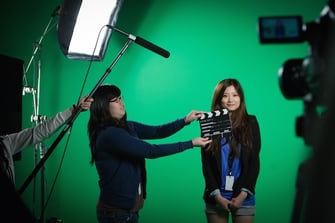
If you're interested in going into the entertainment industry in any capacity, be it directing, writing, producing, animation, editing, or otherwise, you should consider attending film school. I wrote this article to share my knowledge as a USC film school alum and to help you get accepted to film school as well!
My Film Background and Experience
I graduated from the film school that was voted the #1 US film school for the sixth year in a row by The Hollywood Reporter: University of Southern California’s School of Cinematic Arts. My major was Film & Television Production (a program with a 3% admission rate).
In addition to being accepted into a top US film school, I received a full-tuition merit scholarship to USC. During my senior year, I was asked to serve as the student representative in scholarship interviews for the film school, so I have experience reading and analyzing applications with other representatives of USC's School of Cinematic Arts. I was able to identify the qualities of a good and bad application and will share those with you below.
What Do You Need to Apply to Film School?
Each film school has its own application process. To find the application requirements for the film school you're applying to, simply search for "[College Name] film program application requirements" on Google. Here's an example:
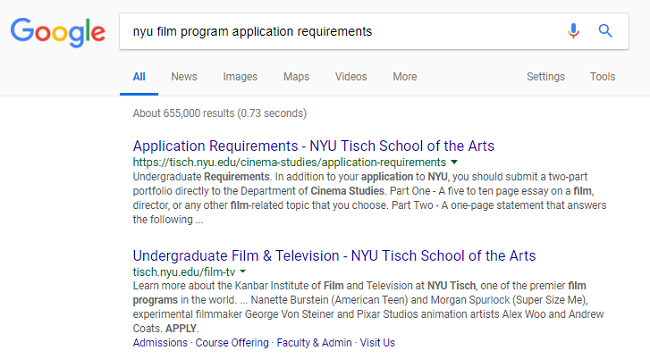
The conservatory style schools (e.g., AFI) only require one application, while film schools based at four-year universities (e.g., USC and NYU) typically require two applications: the application to the overall university (usually the Common Application) and the supplementary application to the film school.
I won’t get into the nitty-gritty of how to write the best general application (for more on that, check out our guide to building a versatile college application). This application is still important, though, because you won't be admitted to a college's film program if your test scores, transcript, letters of recommendation, and other materials are not impressive enough.
Instead, I'll be talking about the supplementary application specifically (the only application for conservatory schools), and I'll be using USC’s as my example as I’m sure many of you who are reading this will be applying there. Even if you aren’t applying to USC, its application is pretty much the standard film school application.
For USC’s film application, you'll need the following materials:
- Cinematic Arts Personal Statement
- Writing Sample (A or B or C)
- Visual Sample (Video or Photo Option)
- Creative Portfolio List
- Letters of Recommendation (3)*
I'll go into detail for each of the components below (excluding the letters of recommendation since these are just your typical letters).
#1: Cinematic Arts Personal Statement
One part of the USC film school application is the personal statement. Here is how USC describes this component (all bold emphasis mine):
The personal statement will be read by the Film & Television Production Admission Committee as a measure of creativity, self-awareness and vision. We are looking for a sense of you as a unique individual and how your distinctive experiences, characteristics, background, values and/or views of the world have shaped who you are and what you want to say as a creative filmmaker. We want to know about the kind of stories you want to tell. Bear in mind that enthusiasm for watching films, descriptions of your favorite films and the involvement in the filmmaking process is common in most candidates. As a result, we encourage that you focus on your individuality. Note that there is no standard format or correct answer. (1,000 words or less)

What should you write?
In layman’s terms, your personal statement should be an essay of no more than 1,000 words that captures your individuality and your passion for film. I think USC gives very helpful hints to what makes a great (or terrible) personal statement. All film school applicants enjoy watching movies and have their favorites (if you didn't, why would you want to go to film school?), so you don’t want your personal statement to be all about that (otherwise, you'll seem unoriginal).
Think about it: what distinguishes you from all those other candidates? Your individuality, who you are. What USC wants to see in your personal statement is that you're an interesting, talented person they should add to their class. USC film school doesn't want average; it wants an engaging storyteller with unique tales to share.
Does USC want you to tell them what a great storyteller you are? No. USC, as well as other film schools, want you to show them what a great storyteller you are. To do this, you must tell a story.
Let me demonstrate. Here is the introduction to my personal statement from my actual USC film application:
Cheerleader. A word that makes me want to hurl and is too often used to describe yours truly. I guess a bubbly, outgoing personality and attractive physique means you are a cheerleader. I sit excitedly waiting to hear my name. It’s 2006. I’m 14, and I’ve made it all the way to the Florida State Science Fair for my experiment on determining whether bacteria or fungi is more effective in cleaning up oil spills (BP could have used my help). I finally hear my name called and eagerly rush up to meet one of the judges to discuss my project. I spot him and am about to introduce myself. Before I can get a word out, he stops me, saying, "Let me guess, you’re a cheerleader." Let me clear the air now I am not now nor have I ever been a cheerleader. Firstly, I lack the acrobatic prowess required for such a role. Secondly, I hate the label. I correct the judge, to his embarrassment. We continue on to have an intelligent discussion about bioremediation, and I end up placing third in the state and winning an award from NASA.
I'm a huge fan of complex characters. It's too easy to jump to conclusions. "A vivacious personality, a flair for style, a good-looking appearance, she clearly has no intelligence to speak of." I want to tell stories with surprises and characters that break the rules like Martin and John Michael McDonagh.
In this introduction, I've told you a story about me from my past that reveals who I am, and I analyze it to show you what kind of storyteller I want to be. I know this is no easy task, but I'll try to help you brainstorm your personal statement story.
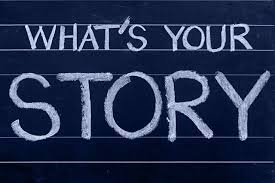
Is there a moment in your life you're particularly proud (or even ashamed) of? For example, did you help someone? Win an award? Overcome a challenge? Make a big mistake? These are all great types of stories that illustrate your character and your potential to tell a story.
If you're starting to put pen to paper, here are two topics to avoid:
- Sports victories and/or challenges: Unless you have a very rare event to discuss, don’t do it (e.g., you tore your ACL while scoring the winning goal in the state championship). Think about how many students across the country play a sport at their high schools. These are the most common stories admissions officers read, and they hate them. (This is an example of a topic that would make you seem unoriginal.)
- Religious experiences (such as camp stories, mission trips, etc.): Again, there might be an exception to this, but if you're talking about a religious awakening, it's an experience many people have had. Also, it might make the admissions officer feel uncomfortable.
Admissions officers want to see what is special about you, so don’t tell a story that will group you in with most other applicants. Simple experiences/stories are often best.
I wrote another personal statement (for my other applications) about giving money to a homeless man. After I walked away, the homeless man followed me down the street. I tried to get away from him, thinking he was trying to harass me. Finally, he caught up with me and asked for my name. I hesitated but told him it. He then shouted, "God bless, Lauren!" He had followed me to thank me and shake my hand. I was horribly ashamed that I’d thought the worst of him.
Do not think that your story needs to be about saving the world.
#2: Writing Sample for Film School
The writing sample provides you with another opportunity to reveal what kind of storyteller you’d like to be. According to USC, your writing sample can be one of three options:
- A dialogue scene between two people. Provide a one-paragraph introduction describing the two characters in screenplay format. (no more than three pages)
- A description of a four-minute film that contains no dialogue. It can be fiction or non-fiction. The story has to be communicated visually. (no more than two pages)
- Describe a concept for a feature-length movie, fiction or documentary, which you would like to develop. (no more than two pages)
I recommend option 2 or 3. You can attempt option 1 if you want, but I think it's the most difficult of the three to write well. I chose option 3, which I believe is the easiest option. Only submit option 2 if you feel very confident about your dialogue (i.e., that it sounds realistic and not cheesy) and scene structure (i.e., that it has a clear beginning, middle, and end).
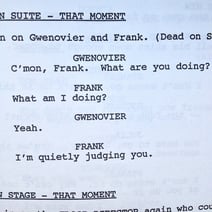
Regardless of the option you choose, you need to show a side of yourself that is different from what you show in your personal statement. For example, if your personal statement discusses how you watched Jurassic Park in the hospital with your grandmother and how passionate you are about Spielberg, it's best not to write a dialogue scene between a boy and his new alien friend (for the youngins who might not get this reference, in Spielberg’s E.T. a boy befriends an alien). In other words, you need to prove that you don't just want to become a Spielberg copy.
The key here is to exhibit diversity and openness in your application (particularly in your personal statement, writing sample, and video sample). USC doesn’t want fully formed artists who will only make documentaries about one topic and who refuse to tell any other stories; rather, USC wants students who will learn from others and can be shaped into effective storytellers.
In my personal statement, I discussed wanting to become a filmmaker like Martin and John Michael McDonagh (Martin is probably the better known of the two for his movies In Bruges, starring Colin Farrell, and Seven Psychopaths, also featuring Farrell).
Then, for my writing sample, I wrote a concept for a feature-length film set in WWII and centering on a husband and wife. This feature idea isn't just a regurgitation of my love of the McDonaghs—instead, it shows a completely different side of me.
#3: Visual Sample for Film School
Next up is the visual sample. Here are the requirements for this application component at USC:
Please submit one of the two visual samples. It is essential that you specify what role(s) you have played in your visual sample.
- Video Option: Create a brief narrative video in which you had a major creative role. The video can be either live-action or animation, fiction or documentary, but it should reflect your aesthetic tastes and intellectual and emotional interests. (No longer than five minutes.) Please submit only ONE video. Multiple submissions WILL NOT be reviewed.
- Photo Option: Prepare a series of eight photographs you have taken which, when viewed in a specific sequence, portray a unique and original character or which tell a simple narrative story. Also, include a one-page narrative about the character being portrayed in the photos. The images may either be black-and-white or in color. Please upload the photos in order of sequence (1-8). Please upload the required one page narrative into the online application.
Basically, you're required to submit one visual sample, which can be either a video or series of photographs.
Here's my strong recommendation: do not choose the photo option (unless you're applying for a photography degree program). I repeat: do not do the photo option. I have never met a person accepted to film school that chose this option. By contrast, I have met people who applied with the photo option and did not get in. So don’t do it!
While I don't know why the photo option doesn't seem to work well for admission, I have a couple of theories. You're applying to film school to be a storyteller. In your application, film schools want to see the types of stories you want to tell. From just eight photographs, though, it's difficult to tell a complete story (and one that fits into a film genre like comedy). Simply put, telling a narrative or portraying a unique character is extremely difficult to do through photos.
By opting for the photo option, you essentially disadvantage yourself since other applicants can tell a full story (and really reveal their storytelling skills) in a five-minute video. If you care at all about getting into film school, you'll take the time to throw a video together.
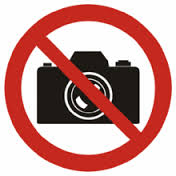
As with the writing sample, the video sample should capture a different side of you or genre of storytelling that interests you. USC also lets you submit a video you had a major role in (e.g., you wrote, directed, edited, or produced it). Note that I'd only submit something you didn't write or direct if you have no interest in being a writer or director (and mention in your personal statement that you want to be an editor/DP/production designer/etc.).
USC wants to see your storytelling style, and if you didn't have a major role in the work (as a writer or director), it might be hard to see your influence on the final product. I didn't have a video to submit for film school, so I wrote and directed something. My friends acted in it, and a friend with a camera filmed and edited it. It doesn’t look like a feature film, but it tells a cute, unique story. Here it is for your viewing pleasure:
Password: SCA2011
Objectively, it's amateurish, but I managed to tell a sweet story that demonstrated my interest in comedy. While I wrote about the McDonagh brothers in my personal statement and composed a WWII period piece for my writing sample, my video sample—a comedy about trekkies trying online dating—was completely different.
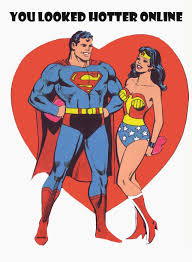
The bottom line? Show an interest in multiple aspects of storytelling in your application!
#4: Creative Portfolio List for Film School
The final piece of your application to film school is the creative portfolio list. Below is how USC describes this application component:
The portfolio list is a written record of the applicant's creative materials. It should include a concise description of each project, the month and year the project was completed, the applicant's creative role and the purpose of the project. The material, which does not need to be film- or television-related, should give an idea of the range and depth of the applicant's creative ability. Formal recognition—such as awards, publications, jobs and exhibitions—should be noted. The name of the institution or publication should be included when listing creative materials prepared for a class or publication.
Basically, you're creating an artistic resume. USC offers examples of what kinds of projects an applicant might include in her list as well as how it should be formatted:
-
July 2008, A Day in the Life, digital video, 12 minutes. Position: writer/director. A documentary on a homeless Iraq vet who has lived on the streets since his return from the military. Created for senior-year multimedia term project, San Raphael High School, Miami, Florida.
-
March 2008, Doorways, a series of 5 black-and-white photographs. Position: photographer. "Second Prize Winner" in the Des Moines Sunday Journal photo contest.
-
February 2007, Cellomorphosis, short story. Position: writer. A variation on the novella by Franz Kafka; published in Writing, vol. IV, 2007, at Amherst College, Amherst, Massachusetts.
Do not worry too much about your portfolio. You don't need to have won awards to get into film school. I had won zero awards for my artwork.
Your portfolio just needs to show that you have an interest in art. This could include acting, art projects (for fun or for school), and music you’ve written or performed (e.g., at a school talent show). Really, anything artistic can and should be included.

Just make sure you don't include any profane or inappropriate artwork. I know this should go without saying, but in one of the applications I read at USC, the student had mentioned something inappropriate on his portfolio list. So I want to make sure you don’t do this, too! His high school art teacher had put an end to the project, but he'd still decided to mention it in his application. If your teacher does or did not approve of a project, it is very likely an admissions committee won’t either!
Completing Your Film School Application
Now that we've covered what materials you need to apply to film school, I want to give you a few pointers on completing your application.
Make sure you know the application deadlines for the film schools you're applying to so you can submit your application well before it's due. If you're unsure of a school's deadline, you can either search for "[College Name] film school application deadline" on Google or check the school's application page on the college's official website. Most schools' deadlines are December 1.
It's a good idea to create a timeline so you can ensure you finish your application on time. After all, your best creative work will probably take more than a week! I suggest spending the summer between your junior and senior years of high school working on your application. If you don't have a video to submit, plan on writing, filming, and editing a video over the summer so that you have it done and won't have to worry about it while you're focused on school work.
Also, prepare your personal statement and written sample over the summer so you can dedicate enough time to each. You'll likely work through several drafts and need people you trust (such as teachers or your parents) to look them over for you. Working on both during the summer lets you take your time and prevents you from rushing through the process.
The only part of your film school application you should not complete during the summer is the portfolio list. You can write a draft, but don't forget to add all your artistic involvements in the fall of your senior year to your portfolio later on.
Final Points to Remember When Applying to Film School
If you're applying to film school, you'll need to understand just how you can produce an excellent application to increase your chances of admission. Here are the essential points to remember when applying to film school:
- Show diversity/multiple interests in your application. For example, you could talk about how you're interested in comedies, period pieces, and sci-fi.
- Emphasize your individuality and prove that you're a unique candidate. Avoid writing about something in your personal statement that most other applicants have experienced, too, such as getting injured in a sport.
- Simple stories are often the best ones!
- Do not do the photo option for the visual sample. Always do the video option; hardly any applicants get accepted to film school with the photo option.
- Do not write about anything inappropriate on your application. If a project you did got canceled or was not approved by a teacher, chances are it's not appropriate to put on your application!
What’s Next?
Studying for the SAT? Check out our complete guide to the SAT. And if you're taking the SAT in the next month, be sure to read our guide to cramming for the test.
Not sure where you want to go to college? Get tips in our guide to finding your target school. We also teach you how to find your target SAT score or target ACT score.
Thinking about getting a job while in high school? Check out our guide to the eight best jobs for teens and learn how to find yours!
Have friends who also need help with test prep? Share this article!

As an SAT/ACT tutor, Dora has guided many students to test prep success. She loves watching students succeed and is committed to helping you get there. Dora received a full-tuition merit based scholarship to University of Southern California. She graduated magna cum laude and scored in the 99th percentile on the ACT. She is also passionate about acting, writing, and photography.



































 Holly R.
Holly R.